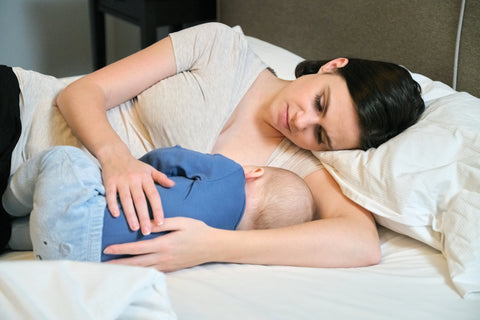
Becoming a mother is a beautiful journey filled with joy and love, but it's also a transformative experience that can take a toll on a woman's body, particularly her spinal health. Pregnancy, childbirth, and breastfeeding are all significant stages that can contribute to middle back pain and other spinal issues. In this article, we'll delve into the physical changes that occur during these phases and discuss rehabilitation strategies for postpartum recovery.
The Physical Toll of Pregnancy:
Pregnancy is a miraculous time when a woman's body undergoes numerous changes to accommodate the growing baby. However, these changes can also place strain on the spine and surrounding muscles. As the uterus expands, it shifts the woman's center of gravity forward, leading to increased curvature of the spine and potentially causing middle back pain. Additionally, hormonal changes during pregnancy can loosen ligaments and joints, further contributing to spinal instability.
Childbirth and Spinal Health:
The process of childbirth, whether vaginal or cesarean, puts immense pressure on the spine and pelvic area. During vaginal delivery, the pelvic floor muscles and ligaments undergo significant stretching, which can lead to pelvic floor dysfunction and instability in the spine. Cesarean deliveries involve abdominal surgery, which can weaken the abdominal muscles and affect core stability, putting additional strain on the spine.
Breastfeeding Posture and Spinal Alignment:
Breastfeeding is another crucial aspect of motherhood that can impact spinal health. Many women experience discomfort or pain in their middle back while nursing due to poor breastfeeding posture. Slouching or hunching over to support the baby can exacerbate spinal misalignment and strain the muscles in the middle back region. Over time, this can lead to chronic middle back pain and other spinal issues.
Rehabilitation Strategies for Postpartum Recovery:
Rehabilitation after pregnancy and childbirth is essential for restoring spinal health and alleviating middle back pain. Here are some effective strategies for postpartum recovery:
-
Core Strengthening Exercises:

Engaging in targeted exercises to strengthen the core muscles, including the abdominals, obliques, and pelvic floor muscles, can improve spinal stability and support.
2. Pelvic Floor Therapy:

Seeking guidance from a pelvic floor physical therapist can help address pelvic floor dysfunction and restore proper alignment in the pelvis, reducing strain on the spine.
3. Postural Correction:

Practicing good posture habits, both during breastfeeding and throughout daily activities, can relieve pressure on the spine and promote proper spinal alignment.
4. Ergonomic Breastfeeding Positions:

Experimenting with different breastfeeding positions, such as the football hold or side-lying position, can alleviate strain on the middle back and improve comfort for both mother and baby.
5. Gentle Stretching:

Incorporating gentle stretching exercises into your daily routine can help release tension in the muscles surrounding the spine and promote flexibility and mobility.
6. Supportive Bras and Pillows:

Investing in supportive nursing bras and pillows can provide additional comfort and help maintain proper alignment during breastfeeding sessions.
7. Seeking Professional Help:

If you're experiencing persistent middle back pain or other spinal issues postpartum, don't hesitate to seek guidance from a healthcare provider or physical therapist specializing in women's health.
Conclusion:
Motherhood is a rewarding journey, but it's essential to prioritize your spinal health during and after pregnancy. Understanding the physical changes that occur during pregnancy, childbirth, and breastfeeding can help you take proactive steps to prevent middle back pain and promote postpartum recovery. By incorporating rehabilitation strategies into your routine and seeking professional guidance when needed, you can support your spinal health and enjoy the precious moments of motherhood to the fullest.




